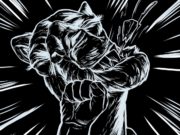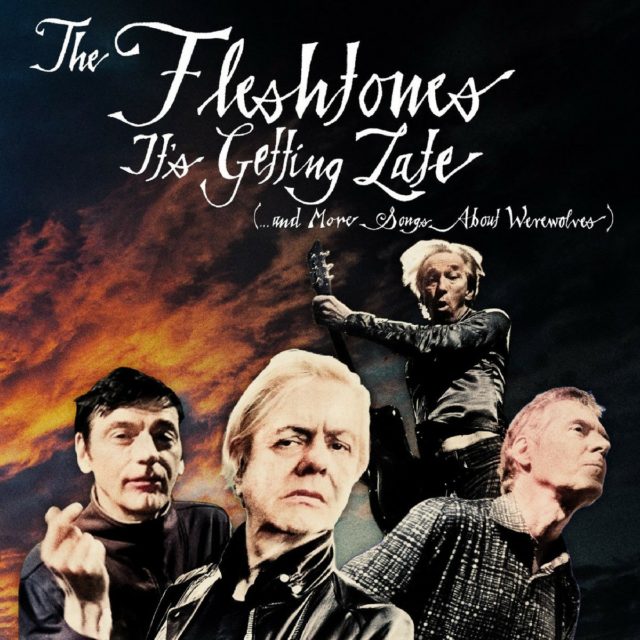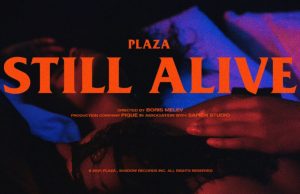THE EDITED PRESS RELEASE: “In a world where there are no more heroes, The Fleshtones walk the earth like Roman gods.
It’s Getting Late (…and More Songs About Werewolves) is a smash that could have dropped at any point in The Fleshtones’ epic career — it is an outburst, and a celebration of their patented Super Rock sound. Unlike their contemporaries, they have not dialed down the tempos to compensate for osteoporosis, they have not lost anything on their fastball, and continue to throw it for strikes. The hardest-working band in garage rock have never sounded better, and now you see why they’ve been your favorite band’s favorite band for decades.
Since their inception in 1976 in Queens, New York, and their sweaty, boozy gestation at legendary venues such as CBGB, Max’s Kansas City and the storied Club 57 — recently feted at the Museum of Modern Art, where their proto-video underground film Soul City was unspooled for art stars, glitterati, and a raft of punk rockers who managed to get past the front gate — they have perpetrated their proprietary amalgam of garage punk and soul, punctuated by the big beat and unleashed with the spectacular show business majesty which has kept them on the road for over 40 years, adored by audiences whose love for them borders on religious fervor.
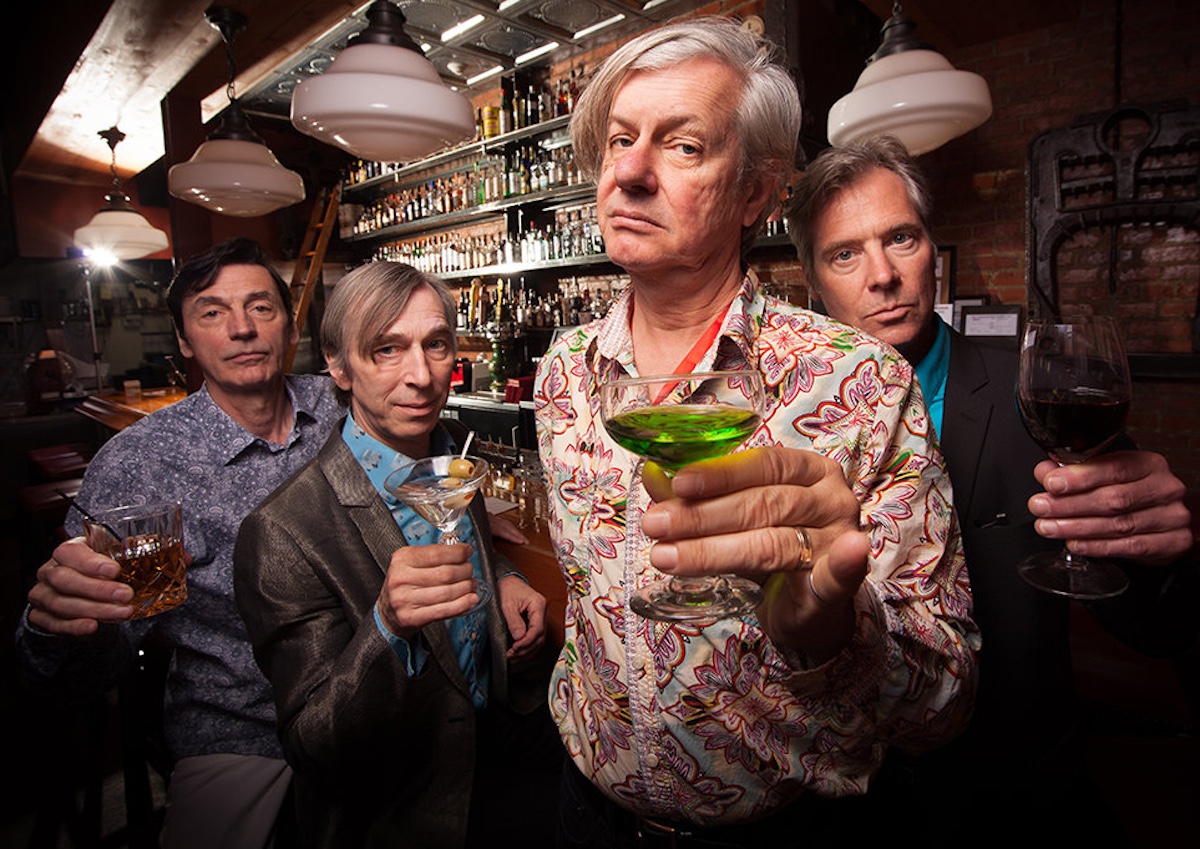
The Fleshtones’ sound defines American beat music, and they have delivered their message with evangelistic passion, always skirting the edges of the mainstream without pandering to any obvious fad or trend. They have appeared on Dick Clark’s American Bandstand; charismatic frontman Peter Zaremba was a host on MTV’s original late-night alternative broadcast The Cutting Edge; and they were the last band to publicly perform at the World Trade Center’s Windows On The World, a society gig by any standard. Always true to their school, they have flags planted in the old world and the new — they appeared with Andy Warhol on his short-lived talk show Fifteen Minutes, and throughout the mid-1980s they regularly played at the Pyramid Club on Avenue A in New York’s storied East Village, and were instrumental in helping to start Wigstock, the drag queen festival that has become an outrageously vibrant part of the New York City experience.
Never as obviously demented nor self-consciously “psycho” as The Cramps (with whom they shared a rehearsal space in 1977), The Fleshtones could also be found after dark, basking in the sick blue light of their television sets, watching late-night horror movies and absorbing the weirdness of America, while simultaneously soaking up the onstage outrages of The Rat Pack, Little Richard, and The Rolling Stones, honing their own live show into an explosive, frenzied manifesto of rock ’n’ roll gone right.
They routinely tour Spain, where fans make pilgrimages to their shows, and they are equally heralded in Scandinavia, Italy, and France, where they have toured incessantly. All over the world — and especially in New York City, the most fickle of towns — younger bands look up to The Fleshtones for lessons in suave stagecraft and unforced enthusiasm. They bring the brio of Chuck Berry and James Brown, with whom they have shared the stage with many times, and the true spirit of CBGB.
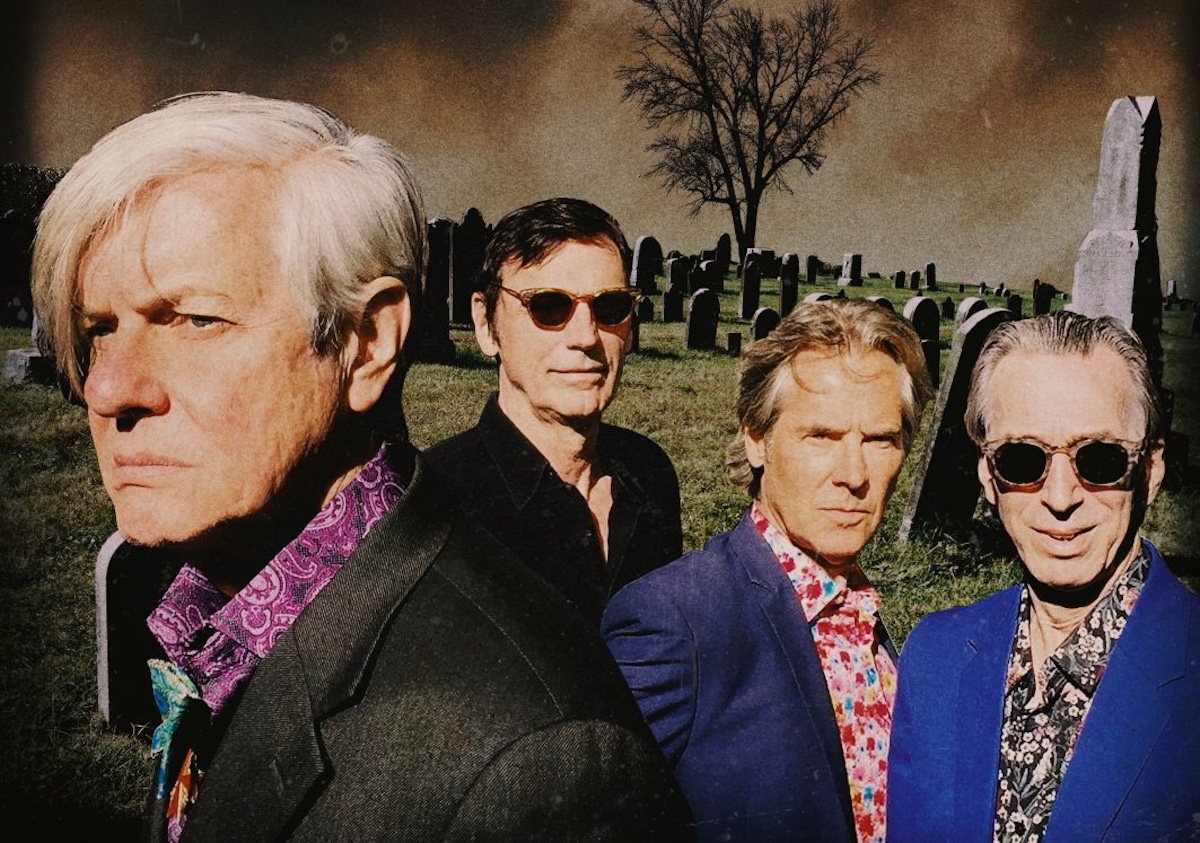
In fact, they are the only band who played at CBGB in 1976 and have never taken a significant break from recording or performing since. Their lineup has been remarkably stable, anchored by Zaremba — wildly swinging, funny, uncompromised, and confident, he is equal parts Dean Martin, Mick Jagger and Count Dracula — and guitarist Keith Streng, who seemingly flies through the air. They are backed by one of the most solid rhythm sections in the world: The decidedly Charlie Watts less-is-more-but-do-it-with-panache drumming of Bill Milhizer, who’s held the chair for 40 years, and newcomer Ken Fox on bass, who has served for a mere 30. Previously, those spots had been filled my luminary mercenaries with pedigree, including Clem Burke from Blondie on drums, and Fred Smith (Television) and Andy Shernoff (The Dictators) on bass, testimony to The Fleshtones’ OG punk roots and authenticity in a world run over by poseurs and off-the-rack frauds.
The Fleshtones were always oddly evolved in a plasma pool of retrograde wannabes — this is a band that promises a party of the least-juvenile sort. And that is why they have proudly worn the Super Rock title since they came howling and gyrating out of the gate. They are the rare thing, like the Grand Canyon — no matter how great you have been told they are, when you finally get to see them for yourself, it is actually much better than any hype.
Evel Knievel once said that “American hero” is the shortest-lived of all professions. The Fleshtones are here to tell everyone he was wrong. They stand tall as the last real thing in America.”









